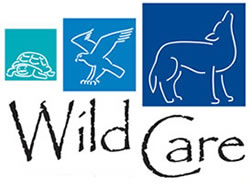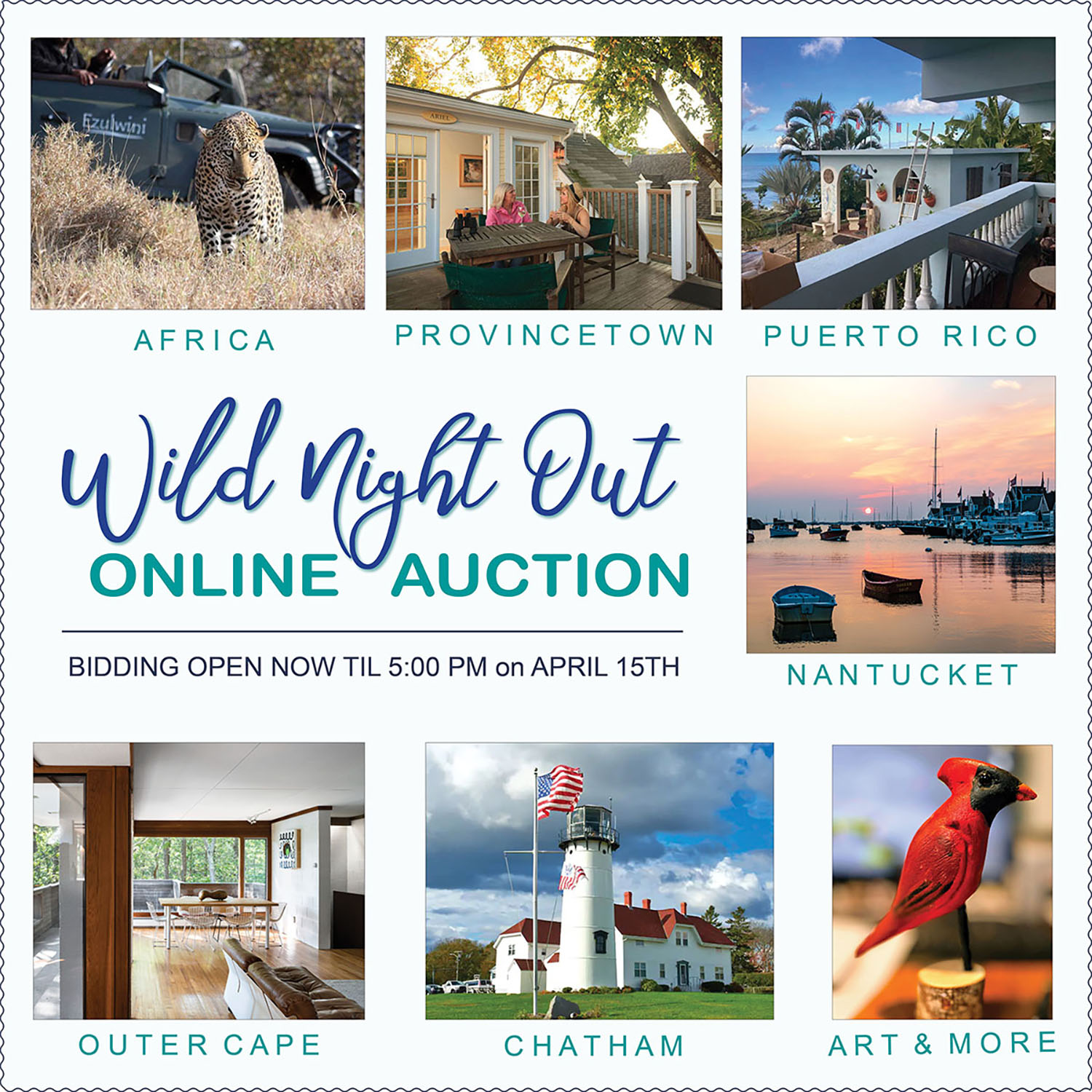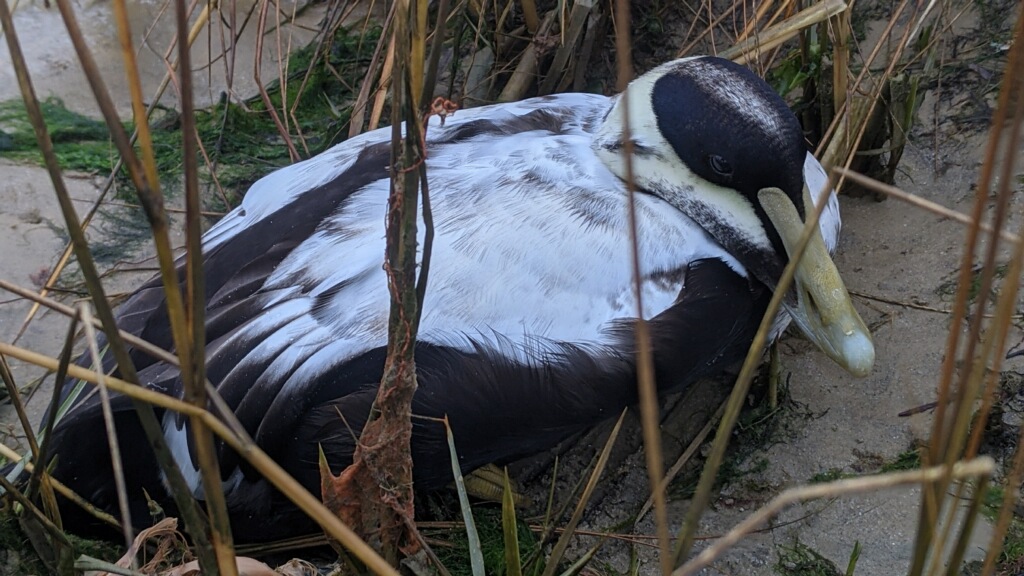
Sea Ducks on Cape Cod – A Lethal Journey?
By Wild Care Executive Director, Stephanie Ellis
Cover photo: Common Eider, by Kimberly Wordell Robbins.
Every fall marks the annual arrival of tens of thousands of sea ducks that winter off the shores of Cape Cod. Many of these birds have migrated thousands of miles from their Arctic breeding grounds, and from boreal forest wetlands and lakes of northern Canada and Alaska. Sea ducks like *Common Eider, Long-Tailed Ducks, Surf and White-winged Scoter, arrive in great numbers. They win
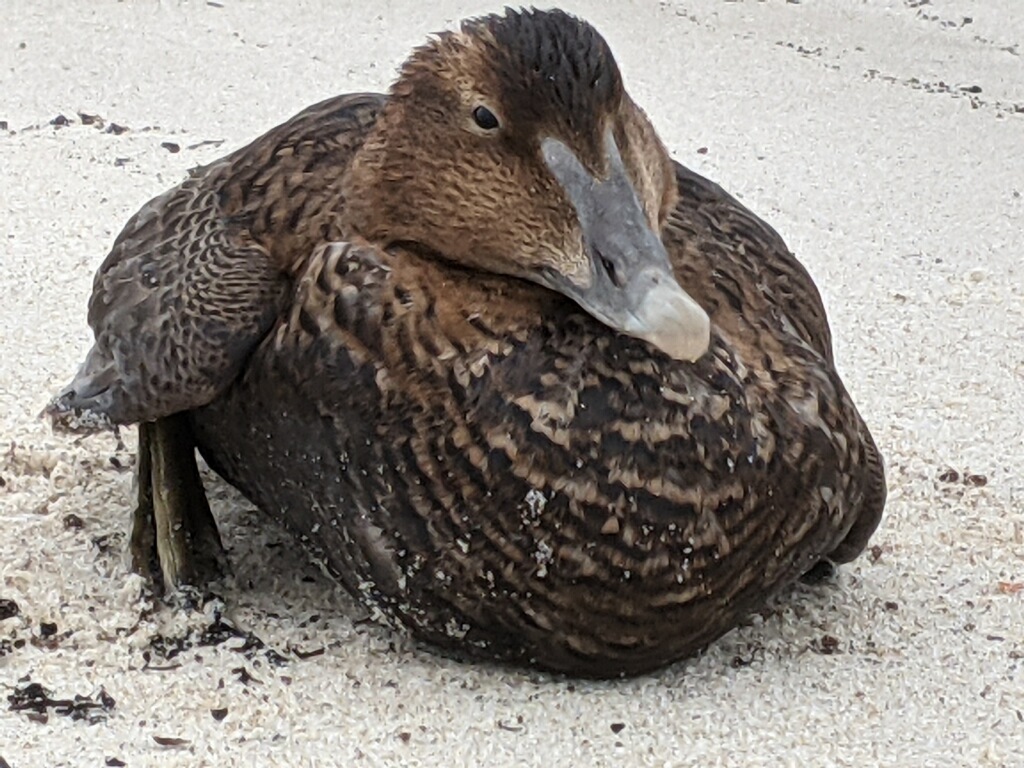
ter here to take refuge from northern climates, find abundant food, and to seek mates before they head north again the following spring.
Shortly after the arrival of the sea ducks, begins the arrival of sport hunters. “There is a huge economy on Cape Cod for duck hunting boat tours. People come from all over the country to hunt ducks here,” states Stephanie Ellis, Executive Director of Wild Care, Inc. “We have colorful and beautiful coastal ducks that winter here in these nutrient rich waters. They are highly sought after by hunters for sport, taxidermy, and occasionally for food and dog treats.” Between Oct. 16, 2021 and Jan 22, 2022, hunters can be found targeting sea ducks in designated coastal locations on Cape Cod and other New England waters.
“At Wild Care, we rehabilitate orphaned, injured and sick wildlife. We absolutely love these ducks and embrace their arrival every fall. They make a long journey here, facing many obstacles along the way. Needless to say, we are not fans of sport hunting. It is my only hope that sport hunters follow the hunting regulations, and behave ethically.”
Hunters are required to make every effort possible to retrieve all birds killed or crippled from hunting. In MA, there is a prohibition against wanton waste.
Even so, birds do get away, and they often end up at Wild Care. “We want people to be on the lookout for injured birds, and to please call us. It is not normal to find a sea duck laying around on the beach to the point where it is approachable. This is not nature taking its course. If you find an injured duck or other wildlife, please contact Wild Care’s Wildlife Helpline, 508-240-2255 from 9AM – 5PM, 365 days per year.”
Every fall and winter, Wild Care receives numerous species of waterfowl – ducks and geese suffering from various ailments, some related to storm events. “In 2021, we received 46 sea ducks representing 6 different species. Five of these birds had been shot. Sometimes we can repair the injuries, but other times, they suffer crippling and irreparable gunshot injuries. In these cases, we elect humane euthanasia to alleviate the animal’s suffering.”
Sea duck hunting with shotguns has been taking place for hundreds of years, and duck hunting in general goes back to prehistoric times. “Duck hunting is not going away. Our goal is to encourage people to report injured ducks, and to be aware of illegal duck hunting activity, and report it to the appropriate officials.”
The following activities are prohibited and reportable to the Massachusetts Environmental Police, related to coastal sea duck hunting.
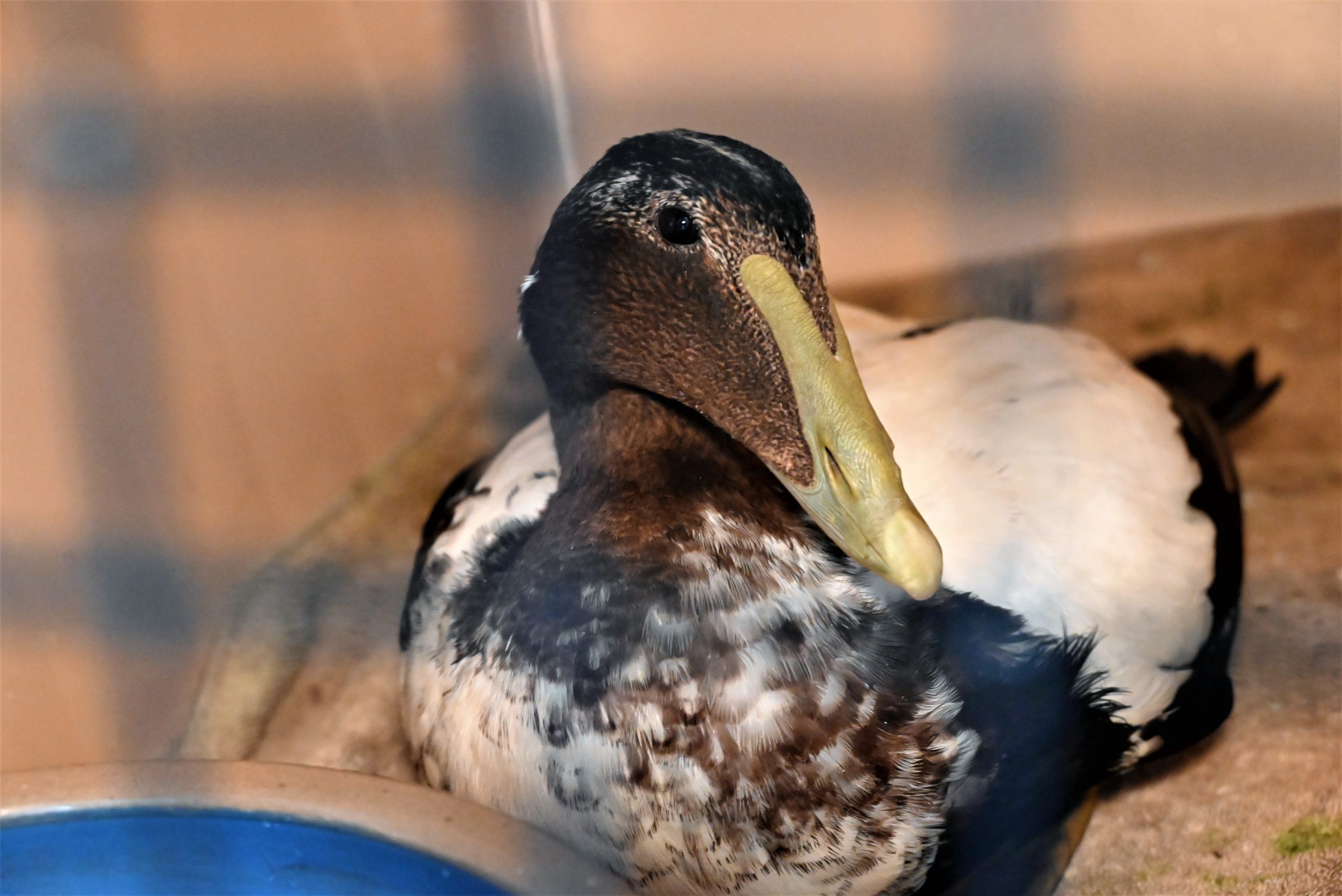
Please contact the MA Environmental Police 24-hour Dispatch, 800-632-8075 to report illegal activity.
This information is courtesy of The Massachusetts Environmental Police.
Prohibited in Massachusetts (Related to coastal sea duck hunting):
-Hunting outside of designated waterfowl season (Coastal Zone: Oct. 16, 2021 – Jan 22, 2022)
-Hunting after designated hours (Ducks can be hunted ½ hour prior to sunrise. Hunting ends at sunset.)
-Use of baiting (food), electronic calls or live animals as decoys
-Intentional failure to retrieve deceased or crippled prey
-Hunting from a power vessel, wind or sailboat, unless vessels are powered off and anchored. (Unless you have crippled a duck and you are trying to retrieve it.)
-Rallying – the act of driving or herding ducks into a specific location to be hunted
-Hunting within 500 ft of a dwelling in use.
-Discharging a firearm within 150 ft of a road
-Shooting at endangered species, or other bird species that are not legally hunted
-Use of a firearm capable of holding more than three rounds of ammunition
-Possession in excess of designated daily bag limit or possession limit. See Mass.gov Migratory Game Bird Regulations.
https://www.mass.gov/doc/2021-2022-migratory-game-bird-regulations/download
*Some populations of Common Eider breed in Massachusetts, Southern Maine, and Central Labrador.
Wild Night Out Online Auction
READY, SET, BID… We are so excited to announce that our Wild Night Out Online Auction is now live!
READ ALL NEWS
CALENDAR OF EVENTS
04 April, 2024
Wild Night Out Online Auction
EVENT DETAILS
05 April, 2024
Wild Night Out
EVENT DETAILS
28 February, 2024
Wildlife Winter/Spring Talk Series
EVENT DETAILS

DID YOU KNOW??
Wild Care has a state-of-the-art seabird therapy pool, which allows seabirds and waterfowl to exercise on running water. This will help our bird friends recover more quickly so they can get back to their watery habitats!
